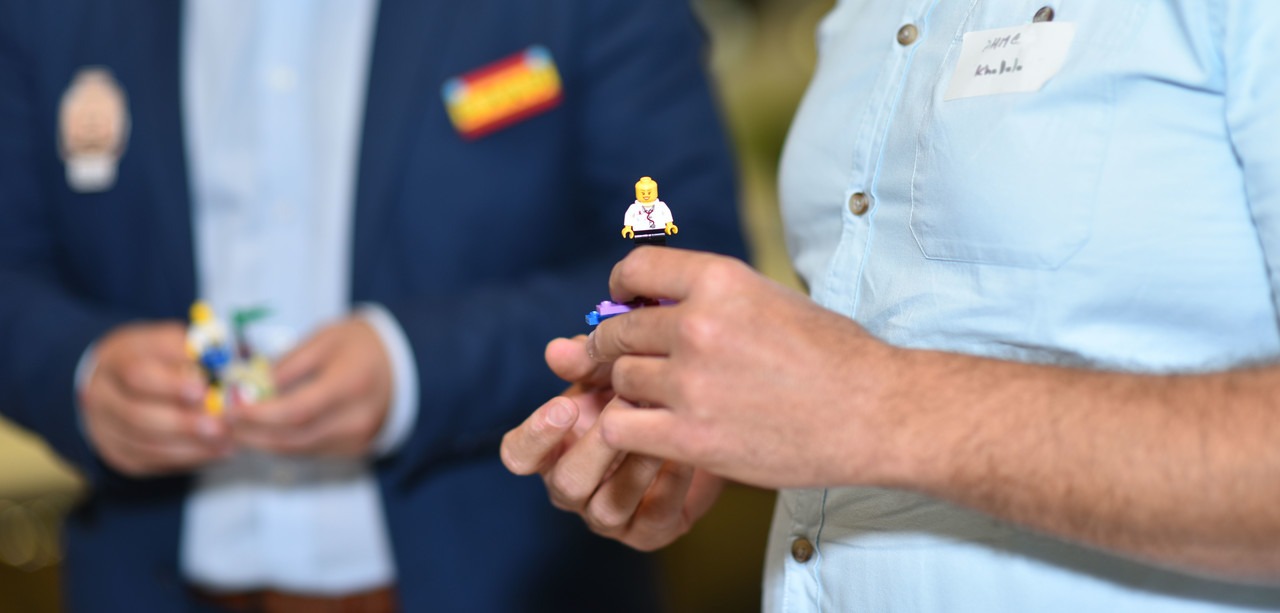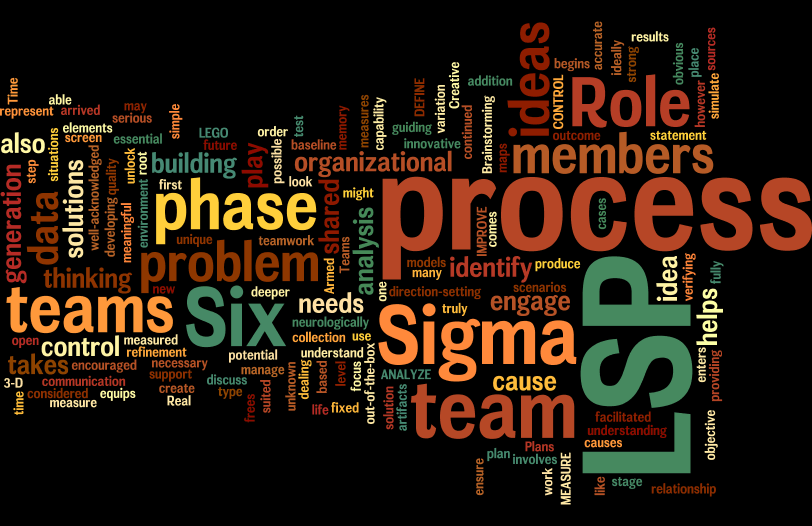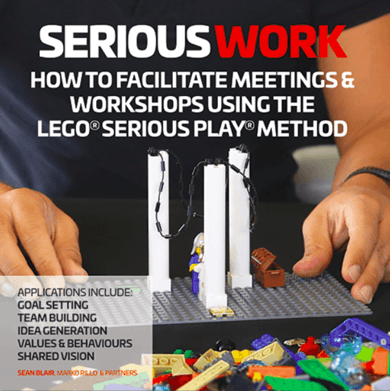Just read on “Cognitive and Emotional Development Through Play”
Cognitive and Emotional Development Through Play
We sometimes neglect to mention a very basic yet powerful method of cognitive and emotional development, for children and adults alike: Play.
Dr. David Elkind, author of The Power of Play: Learning That Comes Naturally, discusses the need to build a more “playful culture” in this great article  brought to you thanks to our collaboration with Greater Good Magazine.
brought to you thanks to our collaboration with Greater Good Magazine.
– Alvaro
——————–
Can We Play?
– By Dr. David Elkind
Play is rapidly disappearing from our homes, our schools, and our neighborhoods. Over the last two decades alone, children have lost eight hours of free, unstructured, and spontaneous play a week. More than 30,000 schools in the United States have eliminated recess to make more time for academics. From 1997 to 2003, children’s time spent outdoors fell 50 percent, according to a study by Sandra Hofferth at the University of Maryland. Hofferth has also found that the amount of time children spend in organized sports has doubled, and the number of minutes children devote each week to passive leisure, not including watching television, has increased from 30 minutes to more than three hours. It is no surprise, then, that childhood obesity is now considered an epidemic.
But the problem goes well beyond obesity. Decades of research has shown that play is crucial to physical, intellectual, and social-emotional development at all ages. This is especially true of the purest form of play: the unstructured, self-motivated, imaginative, independent kind, where children initiate their own games and even invent their own rules.
In infancy and early childhood, play is the activity through which children learn to recognize colors and shapes, tastes and sounds‚ the very building blocks of reality. Play also provides pathways to love and social connection. Elementary school children use play to learn mutual respect, friendship, cooperation, and competition. For adolescents, play is a means of exploring possible identities, as well as a way to blow off steam and stay fit. Even adults have the potential to unite play, love, and work, attaining the dynamic, joyful state that psychologist Mihaly Csikszentmihalyi calls “flow.”
With play on the decline, we risk losing these and many other benefits. For too long, we have treated play as a luxury that kids, as well as adults, could do without. But the time has come for us to recognize why play is worth defending: It is essential to leading a happy and healthy life.
Play and development
Years of research has confirmed the value of play. In early childhood, play helps children develop skills they can not get in any other way. Babbling, for example, is a self-initiated form of play through which infants create the sounds they need to learn the language of their parents. Likewise, children teach themselves to crawl, stand, and walk through repetitious practice play. At the preschool level, children engage in dramatic play and learn who is a leader, who is a follower, who is outgoing, who is shy. They also learn to negotiate their own conflicts.
A 2007 report from the American Academy of Pediatrics documents that play promotes not only behavioral development but brain growth as well. The University of North Carolina’s Abecedarian Early Child Intervention program found that children who received an enriched, play-oriented parenting and early childhood program had significantly higher IQ’s at age five than did a comparable group of children who were not in the program (105 vs. 85 points).
A large body of research evidence also supports the value and importance of particular types of play. For example, Israeli psychologist Sara Smilansky’s classic studies of sociodramatic play, where two or more children participate in shared make believe, demonstrate the value of this play for academic, social, and emotional learning. “Sociodramatic play activates resources that stimulate social and intellectual growth in the child, which in turn affects the child’s success in school,” concludes Smilansky in a 1990 study that compared American and Israeli children. “For example, problem solving in most school subjects requires a great deal of make believe, visualizing how the Eskimos live, reading stories, imagining a story and writing it down, solving arithmetic problems, and determining what will come next.”
Other research illustrates the importance of physical play for children’s learning and development. Some of these studies have highlighted the importance of recess. Psychologist Anthony Pellegrini and his colleagues have found that elementary school children become increasingly inattentive in class when recess is delayed. Similarly, studies conducted in French and Canadian elementary schools over a period of four years found that regular physical activity had positive effects on academic performance. Spending one third of the school day in physical education, art, and music improved not only physical fitness, but attitudes toward learning and test scores. These findings echo those from one analysis of 200 studies on the effects of exercise on cognitive functioning, which also suggests that physical activity promotes learning.
In recent years, and most especially since the 2002 passage of the No Child Left Behind Act, we’ve seen educators, policy makers, and many parents embrace the idea that early academics leads to greater success in life. Yet several studies by Kathy Hirsch-Pasek and colleagues have compared the performance of children attending academic preschools with those attending play-oriented preschools. The results showed no advantage in reading and math achievement for children attending the academic preschools. But there was evidence that those children had higher levels of test anxiety, were less creative, and had more negative attitudes toward school than did the children attending the play preschools.
So if play is that important, why is it disappearing?
The perfect storm
The decline of children’s free, self-initiated play is the result of a perfect storm of technological innovation, rapid social change, and economic globalization.
Technological innovations have led to the all-pervasiveness of television and computer screens in our society in general, and in our homes in particular. An unintended consequence of this invasion is that childhood has moved indoors. Children who might once have enjoyed a pick-up game of baseball in an empty lot now watch the game on TV, sitting on their couch.
Meanwhile, single and working parents now outnumber the once-predominant nuclear family, in which a stay-at-home mother could provide the kind of loose oversight that facilitates free play. Instead, busy working parents outsource at least some of their former responsibilities to coaches, tutors, trainers, martial arts teachers, and other professionals. As a result, middle-income children spend more of their free time in adult-led and –organized activities than any earlier generation. (Low-income youth sometimes have the opposite problem: Their parents may not have the means to put them in high-quality programs that provide alternatives to playing in unsafe neighborhoods.)
Finally, a global economy has increased parental fears about their children’s prospects in an increasingly high-tech marketplace. Many middle-class parents have bought into the idea that education is a race, and that the earlier you start your child in academics, the better. Preschool tutoring in math and programs such as the Kumon System, which emphasizes daily drills in math and reading, are becoming increasingly popular. And all too many kindergartens, once dedicated to learning through play, have become full-day academic institutions that require testing and homework. In such a world, play has come to be seen as a waste of precious time. A 1999 survey found that nearly a third of kindergarten classes did not have a recess period.
As adults have increasingly thwarted self-initiated play and games, we have lost important markers of the stages in a child’s development. In the absence of such markers, it is difficult to determine what is appropriate and not appropriate for children. We run the risk of pushing them into certain activities before they are ready, or stunting the development of important intellectual, social, or emotional skills.
For example, it is only after the age of six or seven that children will spontaneously participate in games with rules, because it is only at that age that they are fully able to understand and follow rules. Those kinds of developmental markers fall by the wayside when we slot very young kids into activities such as Little League. When Little League was founded in 1939, the adult organizers looked to children themselves in setting the starting age, which ended up being about age nine or older. But the success of Little League was not lost on parents eager to find supervised activities for young children. Before long, team soccer was promoted for younger children because it was an easier and less complex game for the six– to nine-year-old age group. The rapid growth of soccer leagues challenged the popularity of Little League. This led to the introduction of Tee Ball, a simplified version of baseball for children as young as four.
By pushing young children into team sports for which they are not developmentally ready, we rule out forms of play that once encouraged them to learn skills of independence and creativity. Instead of learning on their own in backyards, fields, and on sidewalks, children are only learning to do what adults tell them to do. Moreover, one study found that many children who start playing soccer at age four are burned out on that sport by the time they reach adolescence, just the age when they might truly enjoy and excel at it.
Bring back play
Play is motivated by pleasure. It is instinctive and part of the maturational process. We cannot prevent children from self-initiated play; they will engage in it whenever they can. The problem is that we have curtailed the time and opportunities for such play. Obviously we cannot turn the clock back and reverse the technological, social, and economic changes that have helped silence children’s play. Television, computers, new family models, and globalization are here to stay.
What is important is balance. If a child spends an hour on the computer or watching TV, equal time should be given to playing with peers or engaging in individual activities like reading or crafts. It is important to involve the child in making these decisions and setting the parameters for how they spend their time. If we give children some ownership of the rules, they are usually more willing to follow them than when they are simply imposed from above. It is also important to appreciate individual differences. You will not be able to keep some children from playing sports, while others prefer more sedentary activities.
Another way we can help bring play back into children’s lives is to have schools restore recess for at least half an hour. As research demonstrates, academics are unlikely to suffer from this change; if anything, they’ll benefit. Schools also argue that they cannot afford recess because of high insurance costs and parents’ greater appetite for litigation. But when I speak with insurance officers about this issue, they claim that argument is overblown. Either way, children could still be taken outside, or to the gym, for calisthenics to exercise their bodies.
We must also address the more general problem of test-driven curricula in today’s schools. When teachers are forced to teach to the test, they become less innovative in their teaching methods, with less room for games and imagination. More creative teaching methods build upon children’s interests and attitudes their playful disposition and this encourages them to enjoy their teachers, which in turn enhances their interest in the subject matter. Though computers are one of the forces limiting play, they can be creatively used in the service of playful learning. As more young teachers who are proficient in technology enter the schools, we will have the first true educational reform in decades, if not centuries.
But you don’t have to be a teacher to help bring back play. Many neighborhoods badly need more playgrounds. This was also the case in the 1930s; in response, we saw the “playground movement,” when local communities set up their own playgrounds. A new playground movement is long overdue, especially for our inner city neighborhoods, where safe play spaces are often in short supply. A playground should be required of any new large-scale housing development.
We could go further. In Scandinavian countries, there are play areas in even the best restaurants, as well as in airports and train stations. These countries appreciate the importance of play for healthy development, and we could well follow their example.
Finally children do as we do, not as we say. That gives us incentive to bring play back into our adult lives. We can shut off the TVs and take our children with us on outdoor adventures. We should get less exercise in the gym and more on hiking trails and basketball courts. We can also make work more playful: Businesses that do this are among the most successful. Seattle’s Pike Fish Market is a case in point. Workers throw fish to one another, engage the customers in repartee, and appear to have a grand time. Some companies, such as Google, have made play an important part of their corporate culture. Study after study has shown that when workers enjoy what they do and are well-rewarded and recognized for their contributions, they like and respect their employers and produce higher quality work. For example, when the Rohm and Hass Chemical company in Kentucky reorganized its workplace into self-regulating and self-rewarding teams, one study found that worker grievances and turnover declined, while plant safety and productivity improved.
When we adults unite play, love, and work in our lives, we set an example that our children can follow. That just might be the best way to bring play back into the lives of our children‚ and build a more playful culture.
 David Elkind, Ph.D., is a professor emeritus of child development at Tufts University and the author of the books The Hurried Child, Miseducation, and, most recently, The Power of Play: Learning That Comes Naturally. Copyright Greater Good. Greater Good Magazine, based at UC-Berkeley, is a quarterly magazine that highlights ground breaking scientific research into the roots of compassion and altruism.
David Elkind, Ph.D., is a professor emeritus of child development at Tufts University and the author of the books The Hurried Child, Miseducation, and, most recently, The Power of Play: Learning That Comes Naturally. Copyright Greater Good. Greater Good Magazine, based at UC-Berkeley, is a quarterly magazine that highlights ground breaking scientific research into the roots of compassion and altruism.







 Become a LEGO Serious Play facilitator - check one of the upcoming training events!
Become a LEGO Serious Play facilitator - check one of the upcoming training events!